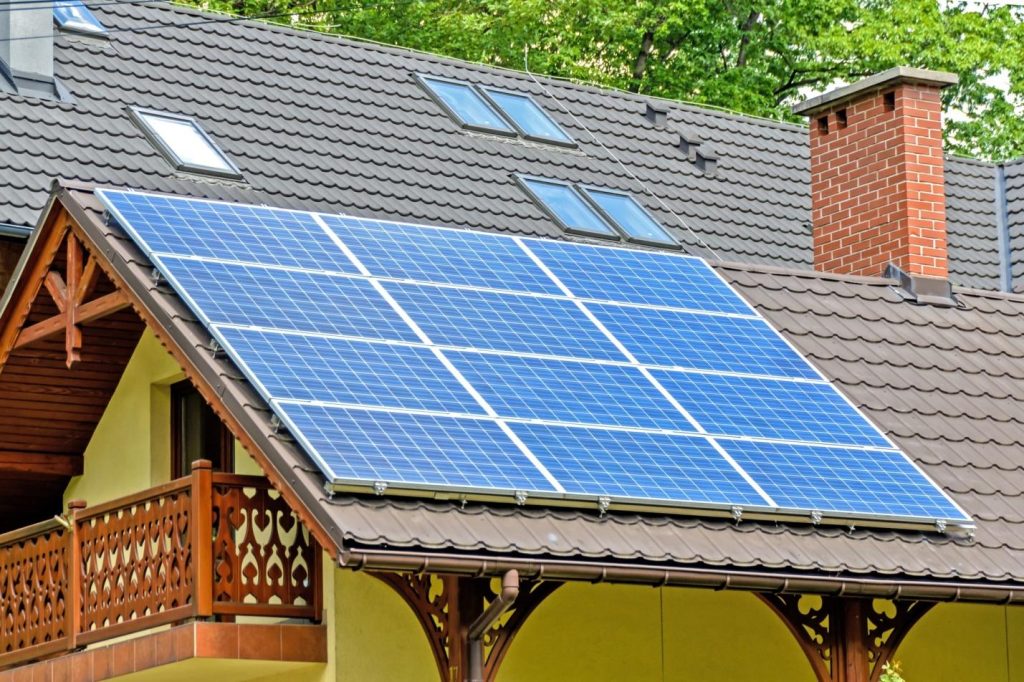
A rooftop solar power system has never been a better investment. Due to rising energy costs and political concerns over wind and solar energy, utility rates continue to see slow-but-steady increases year after year.
When the night sky is full of clouds, many homeowners start to wonder if solar panels are reliable sources of energy. In fact, a solar power system on a cloudy day still reaps many benefits.
Take a closer look at what a cloudy day can mean for your solar panel system.
Debunking the Myth: Solar Power and Cloudy Days
While the power generated from your solar system will be reduced on cloudy days, solar systems still work and generate electricity just fine. The sun’s radiation still reaches the solar panels, even if the sky is overcast.
On a cloudy day, the solar system will perform less efficiently and produce less electricity than on a typical sunny day. However, a good quality solar panel system will still produce an appreciable amount of energy each day as long as there’s still some patchy sunshine coming through.
Exploring the Role of Solar Batteries in Cloudy
Solar battery systems are designed to provide supplemental power and store energy for cloudy days. Exploring the role of solar batteries in cloudy situations can help maximize the power available from a solar power system. Solar batteries provide a buffer between the panels and the energy demands of a home or business.
This buffer absorbs the energy from the cloudy day and helps spread it out over time. With the help of solar batteries, cloudy days won’t be a total loss of energy; instead, they can still provide some power on days with less sunshine.
It is important to highlight that the use of solar batteries is not just necessary on cloudy days; they can also be used to balance the electricity generated throughout the day and thus increase the overall efficiency of the solar power system.
Weather Adapting Your Solar System for Cloudy Conditions
Weather adapting your solar system for cloudy conditions is possible by using a storage system that can store any energy gathered on sunny days. On a cloudy day, the storage system can give energy to machinery and equipment. Depending on the amount of energy produced.
Solar systems are designed to have enough storage to power everything from homes to small businesses. Whether adopting a solar power system for cloudy conditions can save money and give more efficient use of your solar power.
Maximizing Solar Energy on Cloudy Days
Solar power systems can be used on cloudy days; however, the efficiency of the system will be significantly decreased when compared to days with bright, sunny skies. It is important to note that solar photovoltaic panels are not typically designed to store energy in the same way as traditional battery technology.
They can still give a useful source of energy on cloudy days. To maximize solar energy on cloudy days, it is important to use passive heating systems which store heat within insulation, reduce the amount of light and heat lost through windows, and use a thermal mass in buildings to store and release heat throughout the day. Additionally, implementing smart grid technologies can help to regulate energy production and consumption, allowing users the flexibility to use more energy on cloudy days.
Minimize Loss of Solar Energy on Cloudy Days
Solar power systems rely on light from the sun to produce energy, so on cloudy days, the solar energy output produced is lower. With the right design and technology, solar power systems can still use on cloudy days. Maximize energy production even in reduced lighting conditions. Solar power systems are designed to be resilient. Different weather conditions, such as cloudy and rainy days, by optimizing their efficiency.
In particular, techniques such as tracking the sun and adjusting the angle of the panels. The addition of batteries and energy storage help to cut the loss of solar energy on cloudy days.
By optimizing the design of their solar power systems, people can cut the loss of solar energy on cloudy days. Ensure their energy supply is more resilient to external weather conditions.
What to Consider When Choosing a Solar System for Your Home
When considering what type of solar system to choose for your home, it is important to remember that they can still generate power even on cloudy days. Despite the lack of intense sunlight, solar power systems still receive light from the clouds, making it possible for them to capture and store energy.
In fact, some solar systems even require less sunlight and are able to generate more energy on cloudy days. In addition to this, it is important to note that cloud cover does not have the same negative effect on a solar system during winter months as it does during summer months since light travels much farther due to the shorter distances between the sun and the Earth.
Therefore, investing in a solar system for your home is a great way to have a reliable source of energy throughout the year, regardless of the weather. Visit Blueravensolar.com/minnesota today and discover the benefits of clean energy.
Exploring Your Solar Power System
Overall, solar power systems can still be used on cloudy and rainy days, depending on how much solar energy is available. With the advancements in technology and improved efficiency, solar panels can now generate electricity even on cloudy and rainy days. A trusted solar energy contractor can help you determine the best system for your needs. Take the initiative today and contact a solar power contractor to learn more about your options.
Did you enjoy this post? Be sure to check out our other unique content!